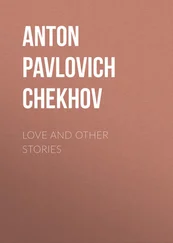In reality, the hoard was no more than a pouch of powdered eggs, a palmful of flour, and a cube of butter. The collaboration was not with the fascist enemy, but with Vera herself, who had dwindled to a bony thing made of stool legs and billiard cues. Despite swearing secrecy, Vera had boasted to Yelena about the small pie her mother had baked for Vera’s birthday. There had been no sugar in it, but nothing in her young life had ever tasted sweeter. Yelena had whispered it to another girl and soon the story had swept through the class, then the school, then the city, a rumor that grew more virulent with each host it infected. Kirovsk had only one mailbox for postal mail, but several hundred mailboxes for denunciations. To send a letter, you’d have to walk to the central post office and wait in line for the better part of a morning; to send a denunciation, you wouldn’t need to leave your factory, school, or apartment block.
By the time the tale had reached the town commissar, it seemed perfectly plausible for a starving woman to carry off a hundred kilos of flour and a dozen live chickens that never existed, all while reciting Trotsky speeches verbatim. The commissar, of course, knew such a story was sheer lunacy, but he’d ascended to the rank of commissar by welcoming the lunacy the world so graciously handed him.
“You really believe I used a hundred kilos of flour for a single pie?” Vera’s mother asked in her defense at the trial.
“Profligacy,” the commissar replied, “is characteristic of the fascist.” Five years later, when the commissar was stripped of his rank and sentenced to the mines, he learned for himself that a malnourished body is incapable of carrying a hundred kilograms of anything, including the nourishment it needs. A certain amount of flour had in fact gone missing from the gulag reserves over the course of several months; had Vera investigated the town archives during glasnost, she would have learned that it had all gone to the commissar’s wife. The archives give no evidence of chickens, alive or dead, in Kirovsk in the summer of 1941.
Vera’s mother sent letters from her cell that eventually became a history classroom where the curiosity and childish wonder of several generations of Kirovsk schoolchildren would asphyxiate in the leaden air. The letters, which went by way of the commissar’s office, took more than a week to cross the three hundred meters to Vera’s home. Each was folded into a triangle and let in the cold air as it fell through the mail slot. A censor’s marker striped her mother’s crimped handwriting. Piecing together meaning from the few uncensored words became an exacting lesson in how little she knew her mother.
On October 21, 1941, soldiers young enough to still check their cheeks each morning for pimples marched her mother into the wilderness, where she received her sentence from the barrel of a gun.
Vera’s father, a prison guard demoted to custodian after his wife’s arrest, led Vera into what would become White Forest. He wasn’t a cruel or vindictive man — he would later be eulogized by former inmates as a prison guard whose kindnesses had saved dozens of lives — but he felt he had the responsibility as a father and bereaved widower to show Vera the repercussions of her careless words. They wandered for two hours without speaking. He’d nearly given up, nearly turned for home, when his hands dropped to his sides. There she was, his wife, his dear. Cigarette ends lay among snowy paw prints. Wolves had already found the body. Vera hid before the scene in a bony crouch as her father buried the remains. When he finished, he collected the cigarette ends. Those ends would haunt him more forcefully than the bits of viscera he had gathered from as far as fifty meters from the execution site and buried in an unmarked grave. He would never smoke again.
The mail slot clattered a week later and Vera found a letter. For a brief, spectacular moment, she was able to believe that her mother was still in jail, that the sentence hadn’t been carried out yet, that the corpse ringed by paw prints belonged to someone else’s mother. The letter was dated ten days prior. In it, her mother wrote: I have been given — years without — to correspondence ˗˗˗˗˗˗˗˗˗˗˗˗˗˗˗˗˗ the last ˗˗˗˗˗˗˗˗˗˗˗˗˗˗˗˗˗ receive ˗˗˗˗˗˗˗˗˗˗˗˗˗˗˗˗˗. Ten years ˗˗˗˗˗˗˗˗˗˗˗˗˗˗˗˗˗ and when ˗˗˗˗˗˗˗˗˗˗˗˗˗˗˗˗˗ you will — old, a woman ˗˗˗˗˗˗˗˗˗˗˗˗˗˗˗˗˗ children and ˗˗˗˗˗˗˗˗˗˗˗˗˗˗˗˗˗˗˗˗˗˗˗.
Various journalists approached Vera over the years and she parroted lines about duty, sacrifice, and patriotism. She accepted honors from the Young Pioneers, the Komsomol, the electricians’ and ironworkers’ trade union, despising all, refusing none. “The world will give you pig shit,” her mother had once told her. “The secret to a happy life is learning to accept it as pork sausage.” On account of her heroism in defense of the people, Vera was upgraded to a commissar’s rations and her father was reinstated to his former position. She didn’t have to worry about hunger for many years.
YELENA’S son found work for Vera. Once a week Pavel’s men arrived with two duffel bags and Vera left for the day. That was it, just leave for the day and don’t ask questions. She’d expected jewel-festooned thugs, but Pavel’s wiry underlings looked like boys adrift in the seas of their fathers’ rumpled shirts. Between them they had a combined spoken vocabulary of perhaps two dozen non-scatological words. Vera used the time for errands: the town pharmacy for arthritis medicine, the post office to send letters to her daughter in America, the Leninsky Prospekt kiosk for chocolate bars so aerated they could be used as packing material. As winter neared, she felt herself drawn across the meadow stretching from her house to White Forest.
Sheaves of plastic foliage drooped from metal branches, giving the impression that, despite the chill, she stood at the threshold of a melting realm. She followed the tree line for a kilometer. When her knees ached, she spread a shawl on the ground and sat to draft a letter to Lydia. She spoke the sentences aloud to see in her frozen breath their dissipating shapes. If each was perfect she could live in her daughter’s imagination more prosperously than she ever could in the new Russia. There are so many paths to contentment if you’re open to self-delusion. To that end, she invented stories, built town rumors into fortresses of truth. She wrote that her pension increased each month to keep pace with the hyperinflation, leaving enough in her budget to afford a Korean television. She wrote of compensation, reparations to the victims of state-sponsored terror, that she would finally be compensated for the loss she had, however inadvertently, inflicted upon herself. Justice would prevail in the fertile fantasyland of her Americanized daughter’s mind. Daylight had flattened into burgundies across the horizon.
White flour packed the nicks and divots of the kitchen table where the envelope of money lay waiting for Vera when she returned. Pavel’s men must be bakers, making good use of her spacious kitchen. A few days later she found powdered infant formula and quinine beneath the sink. Yes, she had an idea of what went on in her absence, but better to not think about those things. One evening she returned to find a man still sitting at the table.
“I’m sorry,” she said, rankled by having to apologize for entering her own home unannounced. “Am I early?”
“No, I’ll be going,” the man replied. A boy, really, though these days anyone who hadn’t lived through Stalin was a child to her. Early twenties, the same age as her daughter, the thin gray work shirt and unevenly barbered hair of someone recently released from a grim state institution. The musk of extinguished cigarettes percolated in the heavy air. He sat in a weary slump.
Читать дальше












